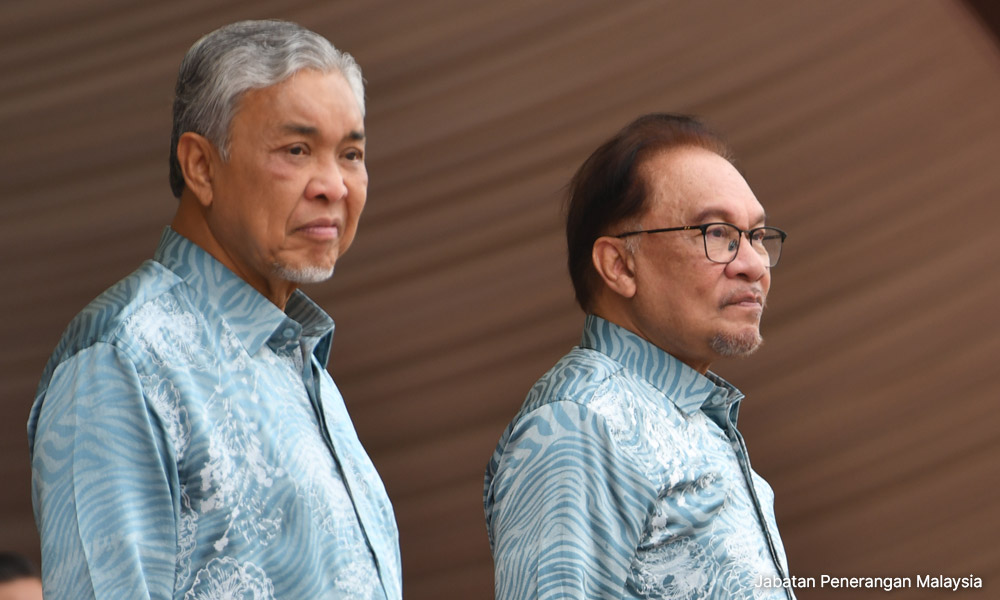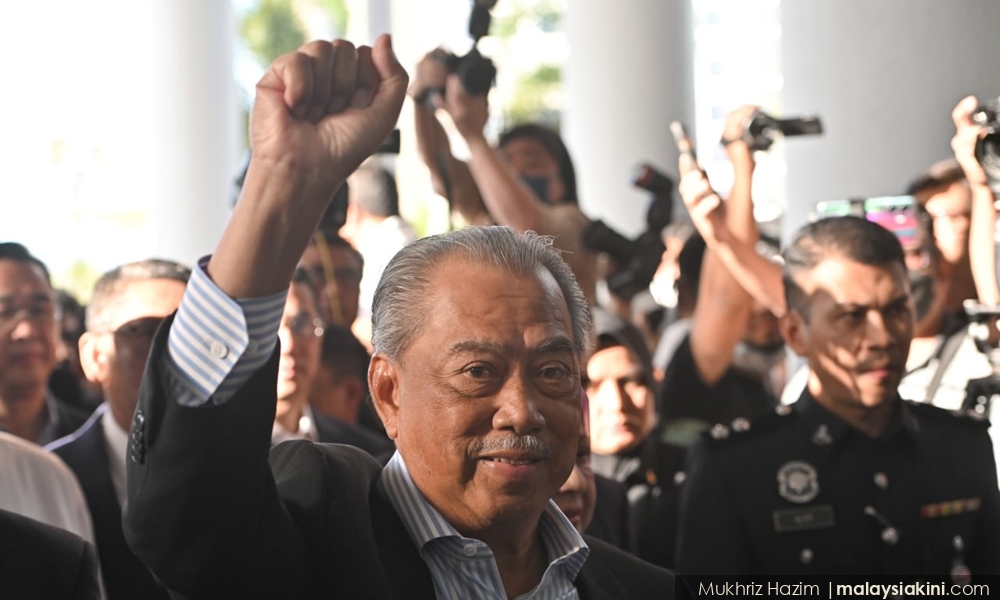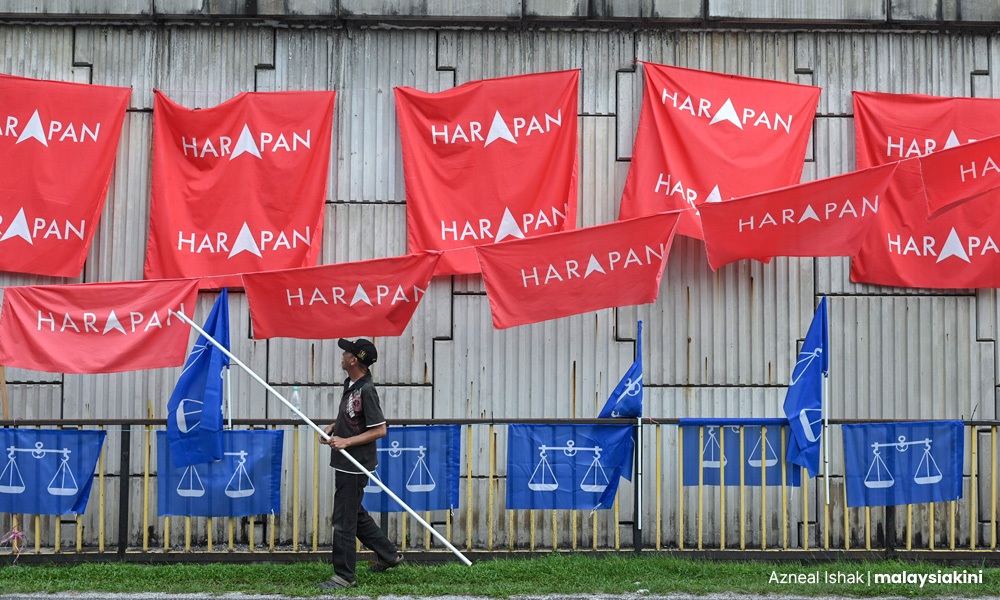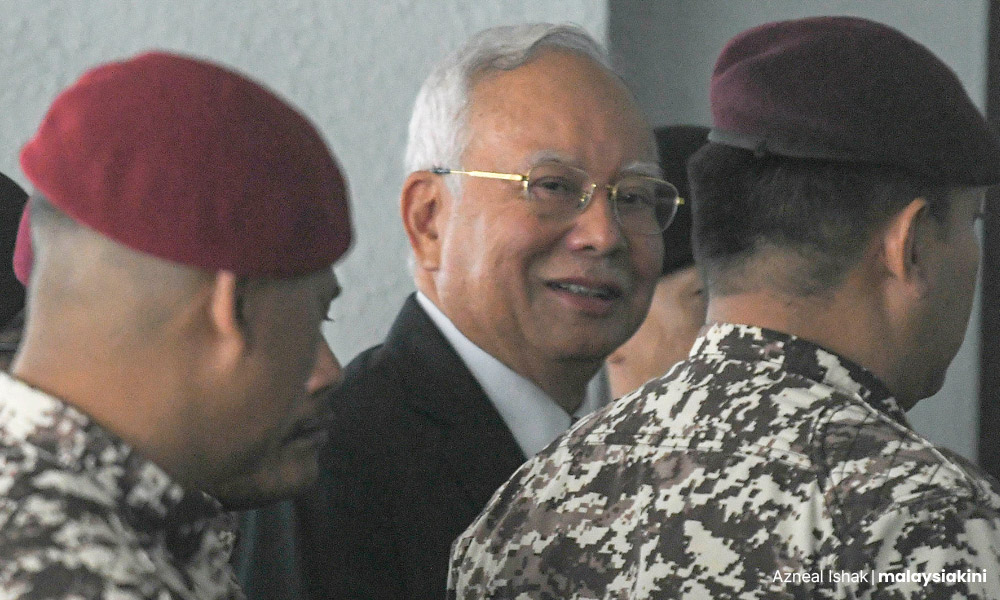For those who think Prime Minister Anwar Ibrahim has been unfairly blamed for Ahmad Zahid Hamidi’s discharge not amounting to acquittal (DNAA), allow me to explain in political terms with minimum legal jargon.
‘You are innocent until you lose power’
Once upon a time, leaders such as kings and ministers were above the law in many societies.
Today in many authoritarian societies, not only are powerful elites above the law, but those who dare to challenge them – opposition leaders and social activists – will also be imprisoned, made bankrupt, deprived of political rights, or even executed under laws.
In one-party states, dictatorships and junta regimes, laws are simply tools to control subjects and crush political opponents.
Hence, there is a clear correlation between power and innocence: You are innocent when in power, and guilty after losing power.
The opposite idea is that every person is equal before the law and that laws must not be bent over to punish enemies of the government.
Even government leaders can be punished for breaking laws, as it is the rule of law, or more loosely, justice.
In societies without the rule of law or justice, individuals are incentivised to seek power instead of acting lawfully.
Those who cannot or will not seek power tend to view power and state institutions in cynicism and disgust.
What was it about, the ‘reformasi’ wave that hit Malaysia when a deputy prime minister could become a criminal simply for challenging the prime minister on the grounds of corruption?
Is it not amongst others to end this cynical correlation between power and innocence – “You are innocent until you lose power”?
Who decides Zahid’s innocence, the judge or the prosecutor?
Where crimes are concerned, the rule of law or justice requires not just impartial judges but also independent prosecutors.
Good judges can rule against selective prosecution filed by bad prosecutors. However, good judges are powerless if bad prosecutors decide to let off the criminals.
How do we get good judges and good prosecutors?
The judicial and legal community can build honour and pride in their profession by installing strong mechanisms in recruitment, filtering and promotion while exercising peer scrutiny to ensure that only the best in both competence and integrity get to occupy those high offices.
Ultimately, judges and prosecutors must be protected from political interference by those whom they may judge or prosecute.
If all of these are intact, the court’s decisions will be respected. Even when every now and then smart lawyers get their guilty clients off the hook, the public’s general confidence in the rule of law will not be diminished.
The crux of the matter in Zahid’s DNAA is not whether Zahid has been a victim of selective prosecution – the ground used by Zahid’s lawyers and accepted by Deputy Public Prosecutor Dusuki Mokthar (whose name must go down in history) in his application for DNAA.
The question is: Why should this be decided by the Attorney-General’s Chambers (AGC) controlled by the prime minister who is the boss of the accused (Zahid), and not the judge?

While the prosecution only filed for DNAA, Zahid’s lawyers did try to apply for a DAA (discharge amounting to acquittal), and if the prosecution does not file new charges in months, Zahid may succeed in getting a DAA.
If the AGC – which doubles up as the prosecution - was previously biased (perhaps since the 1980s under former prime minister Dr Mahathir Mohamad, if not earlier) to commit a selective prosecution, why should we have confidence that the current AGC is now impartial and that it would not deliver selective impunity in the opposite direction?
Fair to blame Anwar?
Some question if it is fair to blame Zahid’s DNAA on Anwar who has repeatedly denied interference in Zahid’s case.
Let me first list three obvious changes in AGC before Zahid’s DNAA. Does it make it likelier for AGC to be not partial towards Zahid?
First, Raja Rozela Raja Toran, the former lead prosecutor in this case, went on leave on Aug 30 before her early retirement on Nov 1, paving the way for Dusuki’s DNAA application on Sept 4.
Second, Idrus Harun, the attorney-general nominated by former prime minister Muhyiddin Yassin (who has been staunchly against Zahid) had gone on leave since Aug 30, ahead of his retirement on Sept 5, with Solicitor-General Terrirudin Mohd Salleh to act in his role.

Third, on Sept 1, when Terrirudin was announced as the new AG, he also happened to be the one who led the prosecution against Muhyiddin.
The point is, however, not whether Anwar has been directly or indirectly involved. The point is Anwar, to whom the AG is answerable, controls the AGC.
As long as the AGC doubles up the prosecution, the sitting prime minister must assume the entire political responsibility for the decision and conduct of the prosecution.
Innocence decided in polls, not court
The implication of Zahid’s DNAA is greater than many people may realise.
Even if a prima facie case is made against Muhyiddin in the future, as long as he can become a prime minister again before getting convicted, he can appoint a new AG to replace Terrirudin, who will withdraw charges against him on the grounds of selective prosecution.
All those who defend Zahid’s DNAA today, please do not condemn Muhyiddin’s DNAA if that happens.
What is really at stake is this: Innocence or guilt of ‘court cluster’ political leaders will be determined not in court, but in the elections.
Is this the Malaysia Madani that Malaysians want? Anwar can claim innocence on Zahid’s DNAA as if we were born yesterday but the political responsibility rests squarely with him as the sitting PM.
Losing issue ownership on justice
The political implication is that Anwar and Harapan have lost the issue ownership of justice, which is ironically the name of Anwar’s own party.
In party politics, different parties ‘own’ different issues, such that voters look to them for those issues and rival parties cannot win by outdoing them on such issues.
For example, Islamism is PAS’ issue and secularism used to be DAP’s issue.
Harapan, and its forerunners, Barisan Alternatif (effectively 1999-2001) and Pakatan Rakyat (2008-2015), own two issues: reform (including anti-corruption, justice and rule of law) and multiculturalism.
Voters trust them on these two more than others.

In GE15, PN wrested issue ownership of Malay-Muslim nationalism from Umno and tried to claim ownership of anti-corruption (part of reform). Hence, its slogan is ‘BEST’ (BErsih dan STabil).
Harapan and Umno supporters can dismiss PN’s reformist pretence by pointing out the worst of patronage politics during Muhyiddin’s prime ministership - to buy support, he gave 99 out of 113 government MPs executive, statutory body and GLC appointments – and his own corruption case.
However, this contradiction does not matter to PN’s ground. When PAS was Umno’s covert partner and enjoying corrupt money from former prime minister Najib Abdul Razak, Bersatu was formed to take on Najib and Umno on the 1MDB scandal.
Most of all, hardcore supporters backed up PN for its Malay-Muslim nationalism (the issue it really owns) but they would prefer ‘anti-corruption’ as another justification, especially when reaching out to middle-ground voters.
Zahid aside, PN is the biggest winner of Zahid’s DNAA. It can easily dismiss Muhyiddin’s trial as simply prosecution. If Muhyiddin is convicted, ‘Free Muhyiddin, New AG’ can be a GE16 slogan for PN.
More detrimentally, PN can craftily weave ‘non-Muslims’ support for Harapan into its earlier ‘corrupt non-Muslims’ narrative, giving its Malay-Muslim nationalism a moralist packaging.
All the ‘lesser of the two evils’ defences would just make good materials for PN TikTokers.

Would Najib be freed too?
Would Anwar go further by having all remaining charges for Najib withdrawn to pave the way for his pardon? Already, the AGC has conveniently missed the deadline in July for filing an appeal against the acquittal of Najib and his accomplice Arul Kanda Kandasamy in one of the cases.
That the Zahid’s DNAA happened before the two by-elections in Johor means that Anwar does not fear the backlash of reformist and non-Muslim voters.
He seems to think their fear of the “Green Wave” would drive them to vote Harapan-BN whatever his moves.
As the most reformist party in Harapan, DAP is bearing the brunt. Its statement asking explanation from Idrus on his last day shows both its innocence and marginalisation in Anwar’s key political decision.
If Najib gets DNAA too, DAP’s only option to survive GE16 may be pulling out from cabinet and supporting Anwar’s government only on a confidence and supply agreement (CSA) basis. - Mkini
WONG CHIN HUAT is a professor and deputy head (strategy) of the Asia headquarters of the UN Sustainable Development Solutions Network at Sunway University, Malaysia. He declares no conflict of interest.
The views expressed here are those of the author/contributor and do not necessarily represent the views of MMKtT.




No comments:
Post a Comment
Note: Only a member of this blog may post a comment.